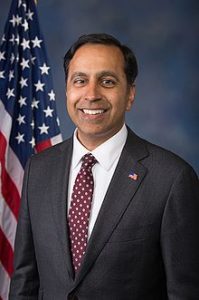New Legislation Helps Employers, Workers Fight the Effects of Domestic Violence

The scope of the domestic violence crisis is enormous: One in three women in the U.S. experience domestic violence or sexual assault in their lifetime. To make matters worse, statistics show that up to 60 percent of domestic violence survivors in our country lose their jobs for reasons stemming from their abuse. Survivors lose nearly 8 million days of paid work per year, resulting in a $1.8 billion loss in productivity for American businesses annually. These staggering statistics result from survivors who must exhaust resources toward legal assistance, childcare, or health care services.
The U.S. House of Representatives recently took a crucial step to protect survivors of domestic violence by reauthorizing the Violence Against Women Act (VAWA) by ensuring that survivors have access to essential services and justice. I was honored to join my colleagues in passing this long-term reauthorization, which included two bipartisan provisions I co-authored to provide economic and workplace security to survivors in the workplace.
We know that millions of businesses often lack the knowledge of how to protect and support survivors of domestic abuse in the workplace. The Bureau of Labor Statistics alarmingly reports that more than 44 percent of U.S. workplaces do not have formal policies to address domestic violence, despite the widespread scope of the problem. If more workplaces were able to adopt such plans, they could be providing life-saving services for tens of thousands of domestic abuse survivors.
To address this, I co-authored an amendment with Representative Don Bacon (NE-02) to require the Departments of Labor and Health and Human Services to jointly create a public awareness campaign to help employers create effective employee assistance programs (EAPs) for domestic violence survivors. Employee assistance programs can make a positive difference by giving services to impacted employees dealing with mental and/or physical issues. For domestic violence survivors, EAPs offer free counseling, health assessments and referrals on a confidential basis.
The Illinois Coalition Against Domestic Violence has advocated for and successfully helped employers create such strategies to help domestic violence survivors budget, pursue education and employment, and create a realistic economic action plan. “One of the biggest barriers to establishing a home without violence is a lack of adequate resources,” says Vickie Smith, Executive Director of the Coalition. “We all must have employment that supports us, and this is a big step in supporting families that have experienced domestic violence.”
In addition to employment, victims of domestic and sexual violence also face a range of barriers to economic stability that hinder their ability to build a fruitful life in the middle class. That’s why another important bipartisan provision in VAWA, which I co-authored with Republican Representative Susan Brooks (IN-05), requires DOL and HHS to study and report the economic implications of domestic violence on factors such as access to quality healthcare, transportation, housing, and education and training opportunities.
The government, non-profits, and the private sector must work collaboratively to offer lifesaving services to victims of domestic violence. By helping employers implement evidence-based EAPs, and examining the impact of domestic abuse on economic stability, we can better support survivors where they often need it the most.
The Violence Against Women Act (VAWA) passed the House and now goes to the U.S. Senate. I strongly urge the Senate to take swift action to pass this measure, and stand ready to work together so that domestic violence survivors have access to lifesaving services.
Author: Raja Krishnamoorthi
Source
